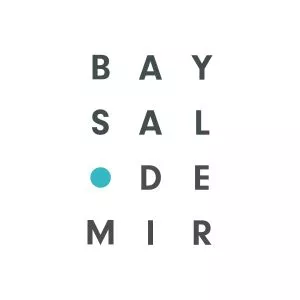- within Insolvency/Bankruptcy/Re-Structuring, Litigation and Mediation & Arbitration topic(s)
- with readers working within the Banking & Credit and Business & Consumer Services industries
I. INTRODUCTION
The relationship between Turkish civil law and Swiss civil law is deep rooted. Along with the foundation of the Republic of Turkey in 1923, the legislator pursued the ultimate aim of modernising the judicial and administrative structure and took the Swiss example as the main reference. In this respect, the Turkish Civil Code, the Code of Obligations and the Enforcement and Insolvency Code, as well as the Civil Procedural Code and the vast majority of the Commercial Code are derived from Swiss law.
Turkish insurance law, however, is an exception. Albeit constituting a part of the Commercial Code, it is mainly adopted from German law.1 Yet, insurance law has always been backed up by general civil law principles which inevitably prevent Turkish authorities and scholars from turning a blind eye to the developments in Swiss jurisdiction.
The Swiss Insurance Contract Act of 1908 ("ICA") has undergone significant changes in 2020. Historically liability insurers had been, in principle, obligated under the insurance contract towards the insured persons only. Accordingly, a third party who has suffered from damages, must make a claim against the tortfeasor. These diversions are omitted with the revised ICA which provides a right of direct claim of the third party to sue the liability insurer.
The authors of this paper see this change as an invaluable opportunity for a comparative analysis on injured third parties' right to direct action against liability insurers, which was indeed a remedy not so alien to earlier practice of Swiss and Turkish law. Given the direct action had a wider and older application in Turkish insurance practice2, the authors trust that practitioners of both jurisdictions would benefit from this analysis.
II. LEGAL BACKGROUND
Turkey
Liability insurance had not been expressly regulated under the former Turkish Commercial Code no. 6762 ("former TCC"), which was replaced with the new Turkish Commercial Code no. 6102 ("TCC") in 2012. Yet, the former TCC had light touches on liability insurance in some of its provisions, particularly those relating to fire insurance (Art 1309, 1310). Moreover, specific laws such as Highway Traffic Law and Transportation Law have also stipulated third parties' entitlement to direct action for the matters under their scope.
As the outcome, the right to direct action vested to those harmed by the insureds was a vague area albeit consistently recognized by the Turkish Court of Cassation since 1996.3 The Court of Cassation had been applying fire insurance provisions to all other insurance policies covering the insureds' third-party liability and acknowledged, before many of its European counterparts did, that third parties were exclusively entitled to claim the payment which would normally be made to the insured as the party to the insurance policy. Although this payment was originally owed to the insured, the aforementioned provisions of the former TCC and the Court of Cassation had recognized third parties as the only beneficiary and expressly stipulated that the insured's creditors were not entitled to reach out to this payment for the satisfaction of their outstanding debts.
The TCC's Insurance Chapter, in force as of 1 July 2012, spared a section special to the liability insurance. The third party's right to direct action, "Direktanspruch", as the reference German Insurance Contract Act calls it, has therefore found a solid legal basis for all types of liability insurance policies.
Switzerland
Under Swiss law, liability insurance policies are subject to the provisions of the ICA. For almost a century, the ICA has hardly undergone any significant changes. To protect the injured party from the insolvency of the liable party, Article 60 (1) ICA has always maintained a lien of the injured party on the tortfeasor's coverage claim under its liability insurance policy.
In the interim, Swiss lawmakers adopted a partial revision of the ICA in 2020, whose revised provisions have entered into force on 1 January 2022. Amongst others, the Swiss legislator wanted to extend the protection of the injured party with the revision of the ICA. The new rule of Article 60 (1bis) ICA provides that the injured party or its legal successors have a direct claim against the liability insurer of the liable person to the extent of the existing insurance cover and subject to any defence which the insurer may raise under the law or the policy.
The concept of a direct claim against the liability insurer is not entirely new in Swiss law. Injured third parties, for example, already have a direct claim against the motor liability insurer of the liable person.4 The new rule of Article 60 ICA now extends this concept to all liability insurance and will lead to significant increases in claims activity and lawsuits against liability insurers in Swiss courts. This is likely to be of particular importance to Lloyd's underwriters active in Switzerland where the claims handling is often delegated to Swiss coverholders.
III. LIABILITY INSURANCE IN GENERAL
Liability insurance which provides the third parties with the right of direct claim and insurance for the account of third parties must be distinguished. In the latter, third parties' insurable interests are covered. The insurable interest under liability insurance remains, in principle, the insured persons' interest and not the damages suffered by the aggrieved third party.
It is also possible for the policyholder to take liability insurance for the account of third parties. E.g., general liability insurances for corporates cover the liability of the policyholder as well as the liability of the employees.5 The damaged third party can therefore directly resort to the liability insurer for the employees' actions.
Turkey
As per Art 1473 TCC, the insurer shall pay the aggrieved person compensation up to the amount stipulated in the insurance policy. The insured's liability arises from an insured event that principally occurs during the contract period even if the loss materialized after that period. The parties are allowed to deviate from this "occurrence-based" stipulation and instead agree on a "claims-made" policy.
The insurers obligation other than the compensation payment is providing legal protection to the insured in case of a claim that is not deemed to be triggering the policy. In such cases, the insurer may instruct the insured or step forward to take necessary legal steps and decisions on behalf of the insured to defend against unjust third-party claims. As a manner of such a statutory "claims-control clause", the insured shall refrain from prejudicing the insurer's rights by withholding information, entering into an unauthorized settlement or otherwise.
The regulative body under the umbrella of the Ministry of Treasury and Finance have issued certain general conditions concerning particular risks such as employers' liability, professional liability and product liability. Directors and Officers (D&O) liability policies, one of the most common policies in practice, do not fall under any specific general condition but often refer to one or two of relevant general conditions. In the absence of the parties' express agreement to the contrary, these general conditions shall be treated as supplementary legal sources to construe the policies.
Switzerland
In Switzerland, it is established practice that liability insurers have the duty to indemnify insured persons for losses (bodily injury and/or property damage) arising from their liability imposed by law, or to defend the insured persons against unjustified insured claims. Cover for pure economic loss is, in principle, subject to individually agreed coverage extensions.
Besides general liability insurance policies, coverage for directors' and officers' liability, professional indemnity and contractors' liability are also frequently available policies in the Swiss liability insurance market. These liability insurance policies are subject to the regulations of the ICA, some of which contain compulsory provisions.
IV. DIRECT ACTION
Turkey
A third party that sustained the loss or damage is entitled directly to payment from the liability insurer. Correspondingly, the insurer is released of its obligations under the policy only to the extent that it indemnifies this third party.
The insured/policyholder is principally not entitled to bring a claim against its insurer for the losses / damages it caused to the third party. Yet, it is possible for them first to compensate the third party and then recourse to the liability insurer to reinstate this payment. This is mainly because the liability insurer and insured are jointly liable towards the third party up to the insurance sum / limits in terms of the Turkish Code of Obligations ("TCO"). Art 62 TCO, in this respect, provides that a liable party who made a payment exceeding its internal share has the right of recourse to other jointly liable party/parties and subrogates the rights of the third party. This payment made by the insured on its own may, however, pave the way for further coverage disputes (including satisfaction of claims-control clause) between the insured and the liability insurer. This is why the insureds do not prefer the make the payment to the third parties unless they obtain their insurers' express consent.
In the absence of such consent, the third parties would be required to direct their claims to either one of (or both of) the insured and insurers. In practice, the third parties are not always be informed of the existence and identity of the insurers. In such cases, they would file a court action to the insured only and expect the respondent to notify the insurer of this lawsuit. This notification, however, does not render the insurer a party to the ongoing dispute. Thus, the third-party must file a separate action after identifying the liability insurer.
Switzerland
Under the revised ICA, the injured third party has a right to claim for damages against the tortfeasor or the liability insurer. The ICA, however, does not address the question whether the liability insurer is jointly liable towards the injured party. Under general legal principles, the latter must not claim multiple compensation. In other words, the liability insurer and/or the tortfeasor must indemnify the injured third party only once.
The liability insurer will meet its obligation under the policy if it indemnifies the injured third party. It may, however, face the risk of "double payments" if it indemnifies the insured person who would not pass on the compensation to the injured third party. Underwriters should therefore consider sufficient safety measures before indemnifying the insured persons who has not yet compensated the injured third party.
Ever since the enactment of the ICA, Swiss courts' practice has also derived from Article 60 (1) ICA a title of the injured third party to claim for surrender of the copy of the liability insurance policy against the tortfeasor. It is to be expected that in practice, this title for the injured third party will be used more often in the future. On the other hand, time will tell whether injured third parties will maintain the former tactic of instigating lawsuits against the tortfeasor and leaving it to them to issue a third-party notice to their liability insurers or follow the new option of suing the liability insurer directly.
a. Insurer's Defenses
Turkey
Although the entitlement to a claim is vested to the third party, the scope of this claim is determined according to the policy terms and conditions as well as TCC's mandatory provisions imposing rights, obligations and duties on the insurer and insured, i.e. the parties to the policy. Therefore, the insurer is entitled to defenses against the third party, which would normally be invoked against its insured.
For example,
- the liability policies, as a matter of TCC's mandatory provisions, do not respond to the losses caused by the insured intentionally.
- The loss may not fall under the insurance clause or may fall under a valid policy exclusion.
- The insured by breaching its contractual obligations and duties (e.g. pre-contractual disclosure and notification duties) may have aggravated the insurers' liability.
The insurer, however, cannot set off the claim with the insured's outstanding premium obligations.
The defenses eligible to the insurer of a compulsory insurance (e.g. liability insurances for motor vehicles, hazardous substances and wastes, medical malpractice) are restricted only to invoking
- the insurance limits,
- provisions defining the scope and exclusions (including the insured's intentional actions)
- statute of limitations.
In other words, the insurer cannot invoke any matter attributable to the insured's negligence against a third-party claim. In such cases, the insurer may recourse to its insured as per TCO's general provisions for a reimbursement for the part that should not have been paid under normal circumstances.6
Switzerland
When introducing the concept of direct claims against liability insurers in the revised ICA, the Swiss legislator further improved the injured parties' rights under mandatory liability insurance.
For mandatory liability insurance (e.g., professional indemnity insurance for lawyers or medical practitioners) the new Article 59 (3) ICA limits the defences available to the insurer, preventing them from raising the defences of: (1) gross negligence or intentional acts; (2) breaches of duties of the insured; (3) non-payment of premium; or (4) contractually agreed deductibles.
Similar restrictions of the insurer's defences already exist in the mandatory provisions of the Swiss Road Traffic Act governing mandatory motor liability insurance (RTA). According to Article 65 (2) RTA, the insurer must not invoke any defence available under the insurance policy or the ICA against the aggrieved party.
Whereas Article 65 (3) RTA provides the insurer with a right of recourse against the policyholder or the insured to the extent that it would have been entitled to decline cover or reduce insurance benefits under the policy or the provisions of the ICA, the revised ICA does not provide for this right of recourse for the liability insurer. Underwriters should therefore take care to include explicit wordings in their policies to secure their recourse claims against the policyholders and/or the insureds, as the provisions of the revised ICA do not stipulate any such right.
b. Notification And Statute of Limitation
Turkey
TCC sets forth prescription periods in a mandatory way. Accordingly, all claims arising from insurance contracts, including third-party claims, shall be time-barred after a period of two years as of the date of when payment becomes mature i.e. due and payable. In any event, such shall be time-barred after a period of 10 years as of the date of materialization of risk.7
If the period of two years has started to commence, the period of ten years would no more be relevant. That being said, the application of prescription rules is not a straightforward issue in Turkish jurisprudence. Principally, the payment to be mature;
- The insured or third-party needs to notify the insurer as soon as practicable following the occurrence of risk,
- The insurer then enjoys 45 days of grace period where it is expected to commence and finalize the investigations.
That being said, the courts have not established a consistent practice and in some occasions tend to directly apply the period of 10 years commencing from the materialization.8
The delay in notification, in isolation, does not prevent the third party to enjoy the insurance payment. If the delay, however, is caused by negligence and prejudiced the insurer's rights, then the payment would be reduced accordingly. In relation with the prescription periods, the insurer may argue that the periods should be deemed to have commenced before the actual notification and expired by the time of an official claim (i.e. payment order through enforcement offices and court action), if it could prove that the notification could have been made earlier.
Given that both the insurer and the insured are jointly liable towards the third party, the third party's official claim against the insured interrupts the prescription period that concurrently run for the insurer. Once interrupted, the prescription period shall start anew. This is why the insurers are often bear the exposure until (and after) the very end of the lawsuit faced by its insured.
Switzerland
The revised ICA has extended the prescription period for claims under the policy from two to five years after the occurrence of the fact giving rise to the insurer's obligation under the policy. The parties to the insurance contract must not reduce this statute of limitation.9 Swiss authors are, however, discussing controversially whether the new statute of limitation of five years shall apply to claims under a liability insurance policy for insurance periods before 1 January 2022 when the revised ICA entered into force. Swiss courts have not ruled on this question yet.
Swiss law also imposes on the insured the duty to notify the realisation of an insured event to the insurer.10 The timely notice of the insured event primarily serves the legitimate interests of the insurer. The insurer must generally be in the position to ascertain as soon as possible the circumstances under which the insured event occurred, as well as the actual or presumed consequences thereof. Also, the insurer must be able, if necessary, to take any suitable measures to mitigate the loss.11 Furthermore, this notification of the insured event constitutes the basis of the claim under an insurance policy. The compliance with the duty of notification to the insurer is a prerequisite for the insured to obtain the benefits under the policy. The parties to the insurance policy are free to agree specific notification obligations, including contractual remedies to be applied in the event of breach. To the extent that the insured is entitled to invoke the defence of late notification against the insured, it can also invoke this defence against the injured third party, if the claim is made under a non-mandatory liability insurance policy.12 The compulsory provision of Article 45 (1)(b) ICA further provides, however, that the liability insurer is not entitled to invoke contractual remedies for the breach of notification duties, if the policyholders proves that the breach did not affect the occurrence of the insured event and the extent of compensation owed by the insurer. For direct claims of the injured third party, Swiss courts' practice must clarify the implications of this compulsory provision. The revised ICA does not address this issue.
Footnotes
1. The new Turkish Commercial Code enacted in 2012, mainly followed the former one dated 1956 and adopted to a large extent German Insurance Contracts Act of 1908 (Gesetz über den Versicherungsvertrag (30.05.1908) that was in force as at 1 January 2001.
2. For Swiss courts practice before 1 January 2022, see Federal Court's Decision no 4A_155/2007 of 9 October 2007, consid. 3.1.2.
3. Court of Cassation, General Chambers of Private Law Divisions, 1995/11-980 E. 1996/18 K., 31.01.1996.
4. The authors understand that the concept of direct claim in motor liability insurance is implemented in all the European Union already (Article 18 of Directive 2009/103 EC of the European Parliament and of the Council).
5. Under Swiss law, see Article 59 (1) of the Insurance Contract Act.
6. Sopaci Öztuna, "Zarar Görene Ifa Yükümlülügü", Sigorta Hukuku Sempozyumlari, 2018, p. 92, 93.
7. This ultimate prescription period is six years for insurances that do not provide liability coverage.
8. Court of Cassation, 11th Civil Division, 2016/14304 E. 2017/2644 K., 04.05.2017
9. Cf. Article 98 ICA.
10. Cf. Article 38 (1) ICA.
11. Keller/Roelli, Kommentar zum VVG, Vol. 1, page 547.
12. Mandatory liability insurance exists, amongst others, for professional indemnity of lawyers or medical practitioners.
 Co-authored with Mr
Cem Arıkan – Counsel - gbf Attorneys-at-law
Ltd
Co-authored with Mr
Cem Arıkan – Counsel - gbf Attorneys-at-law
Ltd
The content of this article is intended to provide a general guide to the subject matter. Specialist advice should be sought about your specific circumstances.



